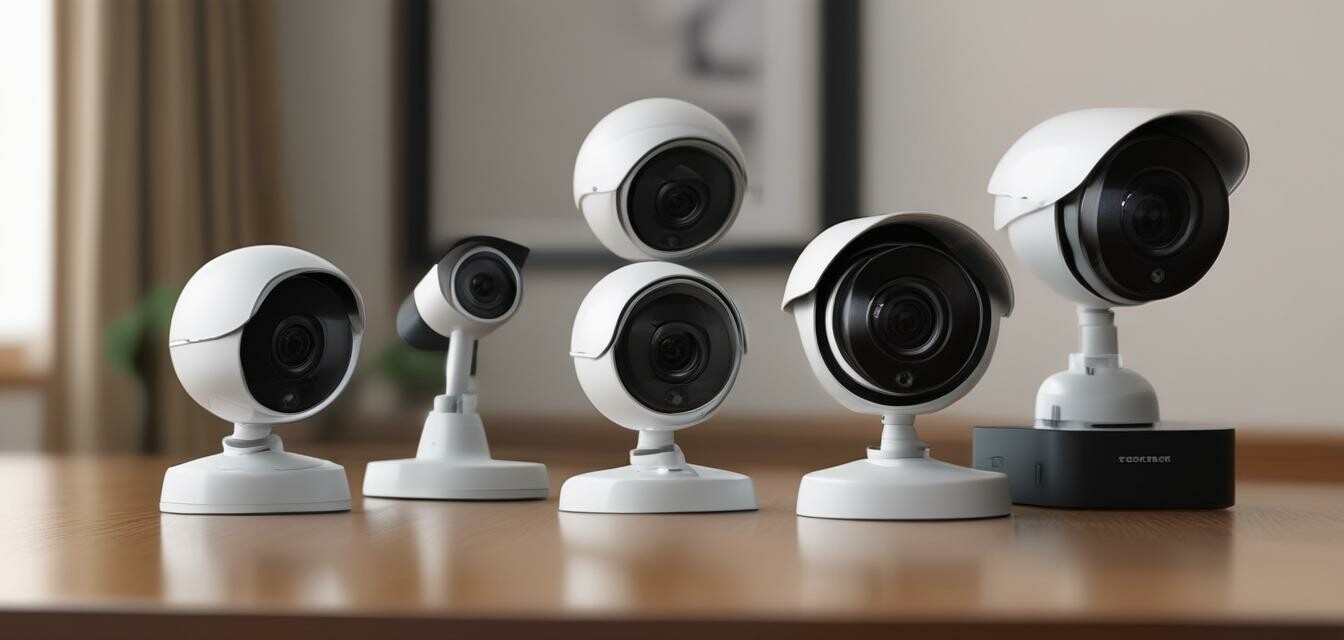
How to Choose the Right Security Camera for Your Needs
Key Takeaways
- Identify your specific security needs and objectives.
- Consider the camera's features like resolution, field of view, and night vision.
- Evaluate the installation process and any required infrastructure.
- Determine the ideal placement for optimal surveillance coverage.
- Explore options including wired and wireless systems based on your home layout.
Selecting the right security camera is crucial in ensuring the safety of your home and belongings. With a myriad of options available in the market, it can be overwhelming to determine which camera best fits your specific needs and lifestyle. In this guide, we will outline the important factors to consider when choosing a security camera, enabling you to make an informed decision.
Assess Your Security Needs
Before diving into specific camera features, take a moment to assess your security needs.
- What areas of your property need surveillance?
- Are you looking to monitor indoor spaces or outdoor areas?
- Do you have specific concerns such as package theft or break-ins?
Types of Security Cameras
Understanding the types of cameras available plays a significant role in your selection:
| Type of Camera | Description | Best For |
|---|---|---|
| Indoor Cameras | Designed to monitor indoor spaces, often featuring two-way audio. | Home interiors and pet monitoring. |
| Outdoor Cameras | Weatherproof and durable, built to withstand elements. | Doorways, garages, and yard areas. |
| Wired Cameras | Connected via cables, providing stable power and data connections. | Static locations requiring constant monitoring. |
| Wireless Cameras | Connect via WiFi; easier to install and relocate. | Flexible placements with minimal installation hassle. |
Camera Features to Consider
Once you've identified your needs and the type of cameras you're interested in, it's time to consider specific features:
- Resolution: Higher resolution provides clearer images; consider 1080p or better.
- Field of view: A wider field of view covers more area.
- Night vision: Essential for monitoring in low-light conditions.
- Motion detection: Alerts you to movement within monitored areas.
- Storage options: Explore cloud vs. local storage for recorded footage.
Installation Considerations
The installation process can vary significantly between different models:
- Wired Systems: May require professional installation, especially for hard-to-reach locations.
- Wireless Systems: Generally simpler installation, perfect for DIY enthusiasts.
- Power Sources: Ensure you have accessible power if your camera requires it, or explore solar options.
Placement Options
Where you place your security cameras greatly affects their effectiveness:
- Install outdoor cameras at entrances to capture footage of visitors.
- Position indoor cameras in high traffic areas.
- Avoid facing cameras directly into the sun or bright lights to prevent glare and reduced visibility.
Additional Support Features
Consider these additional features that enhance the security experience:
- Mobile Alerts: Receive real-time notifications on your smartphone for detected activity.
- Integration with Security Systems: Ensure compatibility with your existing home security setup.
- Cloud Access: Ability to access footage remotely from any device.
Budget Considerations
It’s essential to set a budget when shopping for security cameras. The prices can widely vary, but balancing quality with affordability is key:
Consider the initial investment versus long-term benefits to determine the value of the security system.
Conclusion
Choosing the right security camera involves understanding your unique needs, evaluating camera features, considering installation and placement, and keeping your budget in mind. By following the tips outlined in this guide, you'll be well-prepared to enhance the safety of your home efficiently.
Pros
- Enhanced peace of mind with a reliable security system.
- Ability to monitor your property remotely.
- Visible deterrents may prevent crime.
Cons
- Initial costs can be significant depending on the system.
- Some cameras may require maintenance or regular updates.
- Privacy concerns with camera monitoring.
For more tips and strategies regarding home safety, check out our Home Safety Tips and Best Practices section. You can also explore other categories such as CCTV Systems and Security Alarms & Sensors for comprehensive security solutions.
